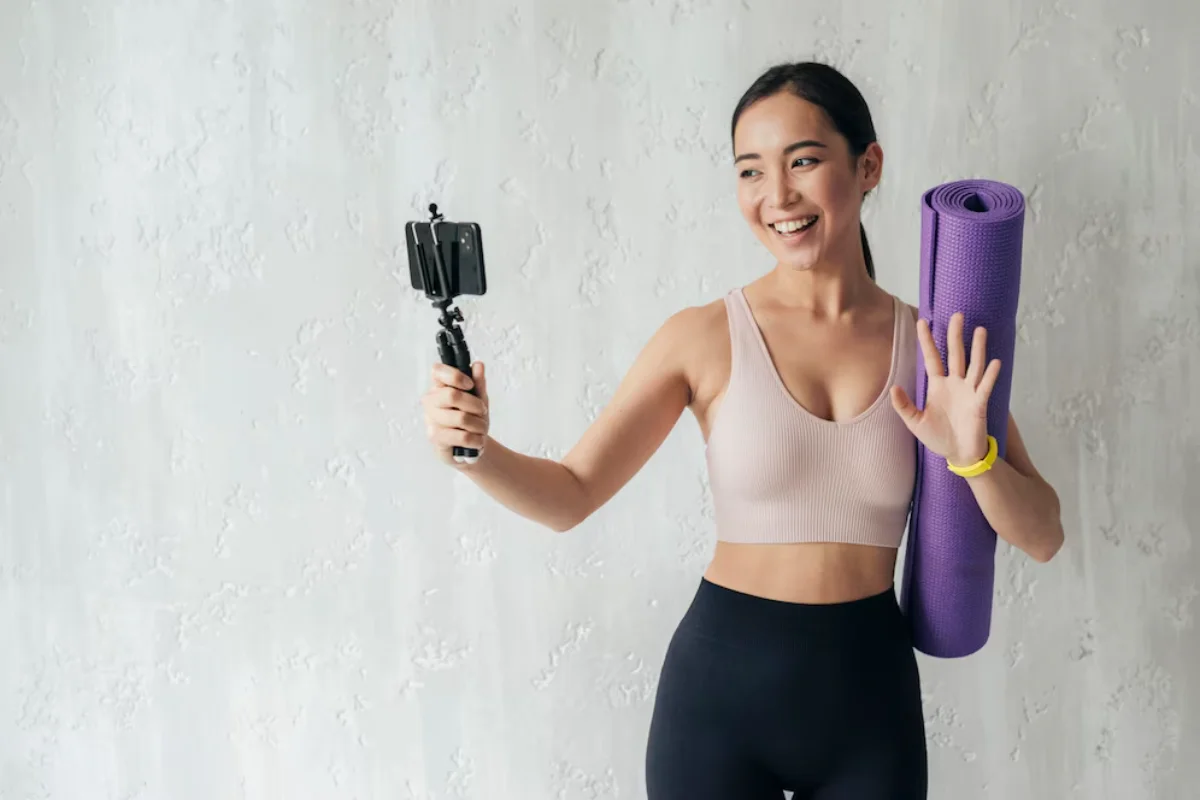
Social Media and Fitness Motivation: Helpful or Harmful?
In today’s digital age, social media has become integral to our daily lives. From sharing personal milestones to following the latest trends, platforms like Instagram, Facebook, and TikTok have revolutionised how we connect and interact with the world. One of the most prominent trends on social media is the rise of fitness influencers who share their workout routines, diets, and lifestyle tips with millions of followers. But as we scroll through these perfectly curated feeds, a question arises: is social media a source of motivation for fitness, or does it contribute to a harmful comparison culture? In this blog, we will delve into the dual nature of social media’s influence on fitness motivation, exploring the benefits and potential pitfalls.

Key Benefits: Why Social Media Matters
Motivation and Inspiration
Social media offers a platform where fitness enthusiasts can find endless inspiration. Fitness influencers often share their personal journeys, showcasing their transformations and the hard work behind their achievements. These stories can be incredibly motivating, encouraging individuals to embark on their fitness journeys. The accessibility of diverse workout routines and nutritional advice means that anyone, regardless of their fitness level, can find content that resonates with them.
Community and Support
One of the most significant advantages of social media is the sense of community it fosters. Online fitness communities allow individuals to connect with like-minded people, share their progress, and seek support. This sense of belonging can be particularly beneficial for those who may not have a strong support system in their offline lives. Engaging with others who share similar goals can boost motivation and accountability, making staying committed to a fitness regimen easier.
Access to Information
Social media platforms are treasure troves of information. Fitness influencers often collaborate with experts to provide evidence-based advice on exercise techniques, nutrition, and mental health. This access to expert knowledge can empower individuals to make informed decisions about their health and well-being. Additionally, social media allows for disseminating the latest research and trends in the fitness industry, keeping followers updated and informed.

The Flip Side: Potential Harmful Effects
Comparison Culture
While social media can be a source of motivation, it can also foster a harmful comparison culture. Scrolling through the seemingly perfect lives of fitness influencers can lead to unrealistic expectations and feelings of inadequacy. The constant exposure to idealised body images can negatively impact self-esteem, leading individuals to measure their worth against others’ curated personas. It’s crucial to remember that social media often presents a highlight reel, not the full picture.
Pressure to Conform
The pressure to conform to certain beauty standards is another potential pitfall of social media. Fitness influencers often promote specific body types or lifestyles, which may not be attainable or healthy for everyone. This pressure can lead to unhealthy behaviours, such as extreme dieting or over-exercising, in an attempt to achieve an idealised physique. It’s essential to approach social media content with a critical eye and prioritise a healthy mindset over societal pressures.
Misinformation and Pseudoscience
While social media provides access to valuable information, it can also be a breeding ground for misinformation and pseudoscience. Not all fitness influencers are qualified experts, and some may promote fad diets or unverified supplements. This misinformation can be harmful, leading individuals to adopt ineffective or dangerous practices. It’s vital to verify the credibility of sources and consult professionals when making significant changes to one’s fitness routine.

Step-by-Step Guide: Cultivating a Healthy Relationship with Social Media
Step 1: Curate Your Feed
Take control of your social media experience by curating your feed. Follow fitness influencers who promote a balanced approach to health and well-being. Seek out accounts that prioritise inclusivity and diversity, showcasing a range of body types and fitness levels. Unfollow accounts that make you feel inadequate or pressured to conform to unrealistic standards.
Step 2: Set Realistic Goals
When setting fitness goals, ensure they are realistic and tailored to your individual needs and capabilities. Avoid comparing your progress to others and focus on personal growth. Remember that fitness is a journey, not a destination, and progress may be slow and non-linear.
Step 3: Engage Mindfully
Engage with social media mindfully by limiting screen time and being selective about the content you consume. Take breaks from social media when needed to prevent burnout and maintain a healthy mindset. Use social media as a tool for inspiration, not validation.
Step 4: Seek Professional Guidance
Consult with fitness professionals or healthcare providers when making significant changes to your fitness routine. Rely on evidence-based advice and avoid falling prey to trends or fads that lack scientific backing. Professional guidance can help you navigate the vast sea of information available on social media.
Additional Expert Tips & Common Mistakes to Avoid
Best Practices
- Diversify Your Sources: Follow a variety of fitness influencers to gain a well-rounded perspective on health and wellness.
- Practice Self-Compassion: Be kind to yourself and acknowledge your achievements, no matter how small.
- Prioritise Mental Health: Recognise the importance of mental well-being in achieving physical fitness goals.
Common Mistakes
- Over-Valuing Aesthetics: Avoid prioritising appearance over overall health and well-being.
- Ignoring Red Flags: Be wary of influencers who promote quick fixes or extreme measures.
- Neglecting Personal Needs: Ensure your fitness routine aligns with your personal values and lifestyle.
Advanced Insights: Expert Recommendations
Embrace Individuality
Celebrate your unique fitness journey and resist the urge to compare yourself to others. Embrace your individuality and recognise that each person’s path to fitness is different. Focus on what works for you and honour your body’s needs and limitations.
Foster a Positive Mindset
Cultivate a positive mindset by practising gratitude and focusing on the progress you’ve made. Shift your perspective from one of competition to one of self-improvement. A positive mindset can enhance motivation and lead to more sustainable fitness outcomes.
Utilise Technology Wisely
Leverage technology to enhance your fitness journey. Use fitness apps to track progress, set goals, and access personalised workout plans. However, ensure that technology complements your routine rather than dictating it.
Conclusion: Navigating Social Media for Fitness Success
Social media holds the power to both inspire and mislead when it comes to fitness motivation. By approaching it with mindfulness and discernment, individuals can harness its benefits while mitigating its potential harms. Remember that true fitness is not about achieving a certain look but about fostering a healthy mind and body. As you navigate your fitness journey, prioritise self-compassion, personal growth, and well-being. Engage with social media as a source of inspiration, not comparison, and take actionable steps towards a healthier, more balanced lifestyle. What steps will you take today to cultivate a healthier relationship with social media and fitness motivation?


